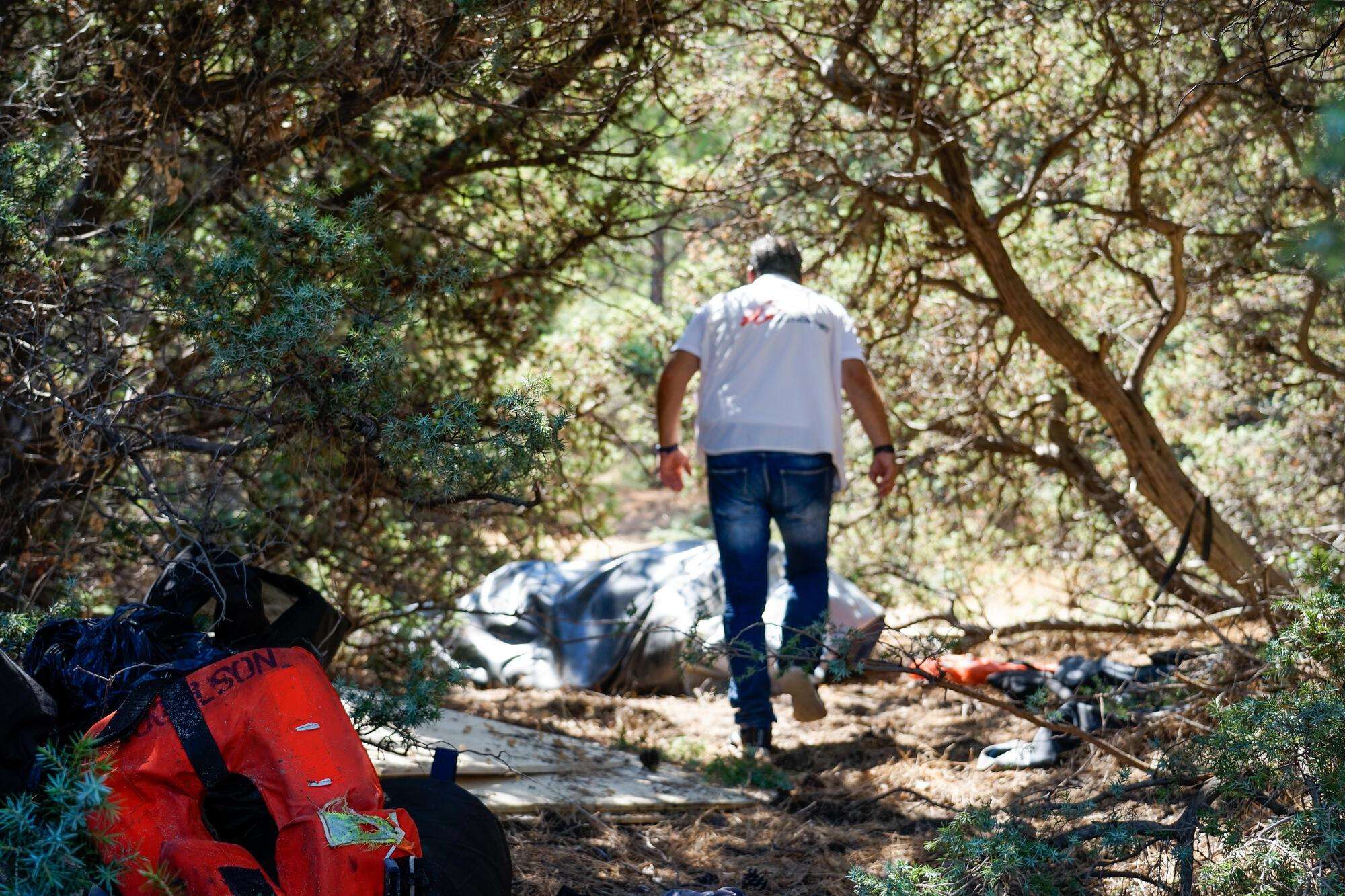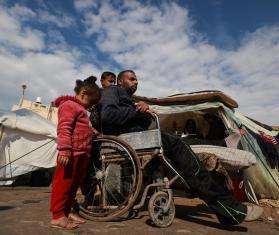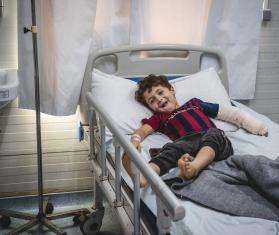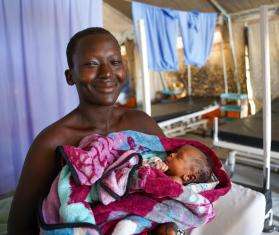People arriving on the Greek islands in an attempt to seek asylum in Europe have described shocking experiences of violence and forcible returns at the hands of authorities to Doctors Without Borders/Médecins Sans Frontières (MSF) medical teams. On 42 occasions over the last year, MSF teams have treated more than 570 people, including 24 pregnant women, who needed emergency medical care or psychological first aid after arriving on the island of Samos. All had traveled from the coast of Türkiye (Turkey)—just a few kilometers away—in small inflatable boats across the Aegean Sea.
Terrified of being caught by the authorities and forcibly returned to Türkiye, most people hide as soon as they reach the island—sometimes staying hidden for days without food or water.
“Some people are so severely affected by fear that they are unable to speak or walk,” said Nicholas Papachrysostomou, MSF head of mission in Greece. “In the summertime, we see a lot of patients suffering from heat exhaustion and dehydration. During the winter months, we had to treat three people for frostbite as they were hiding outside for several days in freezing temperatures. We also frequently treat injuries from accidents occurring whilst climbing steep cliffs on the island, such as leg wounds, suspected fractures, and shoulder dislocations. In April 2022, we treated an entire group who fell down a cliff whilst running from border authorities. To date, we have had to refer 37 people to the hospital by ambulance.”
Many of the new arrivals are women and children. One pregnant woman gave birth while hiding, without medical assistance. Another was in labor when MSF’s medical team arrived to help her.
Most people arriving on Samos describe having been intercepted by security and border authorities during previous attempts to seek asylum in Europe and forcibly returned to Türkiye. Some were returned to Turkish waters—this happened nine times to one person that was assisted by MSF. Multiple people assisted by MSF have told our teams that they arrived with other people who they never saw again.
People treated by MSF report having been subjected to or witnessing physical violence or inhumane and degrading treatment, including beatings, strip-searches, forced genital examinations, thefts of possessions, and being left adrift in motorless dinghies at sea.
“When you have made it to the mountains and they push you back again, you feel like dying,” said Loretta*, who was treated by MSF and described being intercepted and forcibly returned twice by border authorities on the island of Lesvos before she managed to reach Samos. “They brought us to a big port. There were many, many policemen. We had to go inside a building. They started to slap me, the men, the lady who was pregnant: everyone. They slapped us with a stick and with their feet. Since then, I have problems with my leg and with by back too. Then they put us on a big boat.”
While MSF teams have not directly witnessed violent interceptions or forced returns, reports from our patients suggest that these practices are becoming more frequent—and more violent.
“Not only are violent interceptions and forced returns illegal, but they also jeopardize people’s right to apply for asylum,” said MSF field coordinator Sonia Balleron. “These practices also expose people to further trauma and the risk of long-lasting physical and mental health issues. It is the responsibility of Greek and European authorities to ensure that the law is respected and that the procedures regarding reception, identification, and international protection are applied effectively.”
*Name has been changed.
On Samos, MSF notifies authorities before going to a location to assist people in distress, and, once on site, coordinates with security and medical authorities for hospital referrals by ambulance. Our teams carry first aid kits, dry clothes, supplies of drinking water, and emergency food rations and always wear white jackets clearly marked with the MSF logo.
After MSF provides emergency medical and psychological first aid, security authorities take the new arrivals to the Closed Controlled Access Center (CCAC), a high-security reception center located about one hour’s walk from the main town of Vathy. After five days of quarantine, MSF is allowed to visit patients to check on their medical condition and make sure they have timely access to further medical care. Attending the reception center is the only way for new arrivals to register to seek asylum. People have to wait in the reception center while they endure long and complex legal procedures for the completion of their asylum claims.




